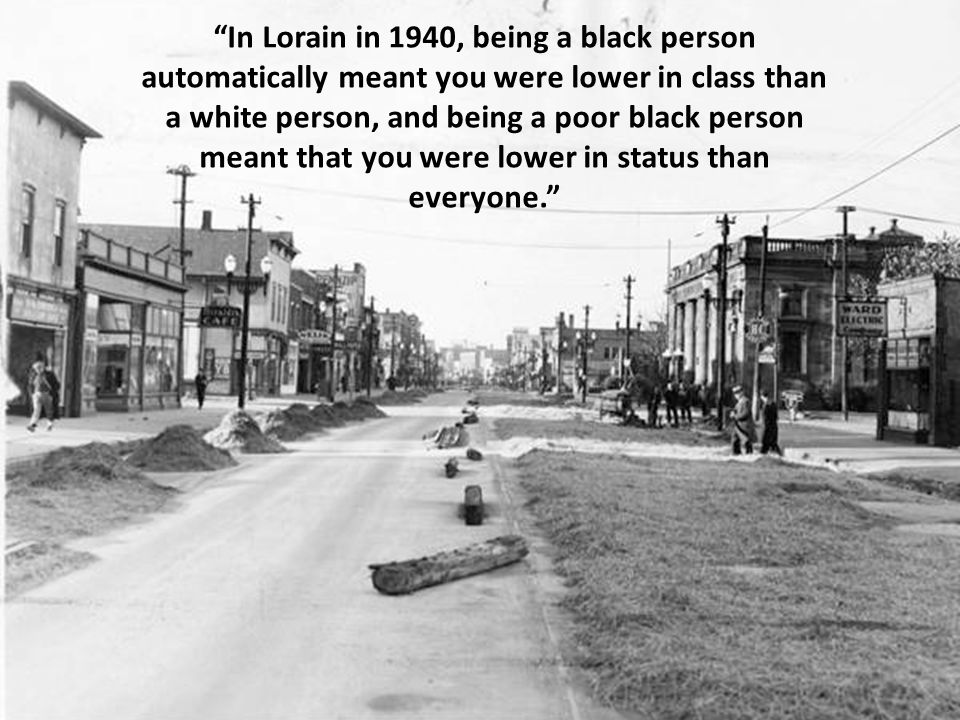
From: The Bluest Eye By Toni Morrison, Lorain, Ohio native.
Why Lord did you bring the Negro to these shores?
CHAPTER I: A Brief History
of Time
My grandfather Charles Henry Morgan
brought his wife Pecola and their children from Pittsburgh, Pennsylvania to an
east side Cleveland neighborhood called Glenville where they lived on Olivet
Avenue. The couple had married in Portsmouth, Ohio. This I learned from
interviewing my aunt Barbara who also told me that her father drank and was a
cheat who beat their mother. It was during their time in Glenville, that my
aunts and uncles learned to dread the sound of their father’s arrival home. Of
the seven children, only Carlos Morgan would graduate from Glenville High School
in the mid-40s. Then, the family left Cleveland in 1947 and moved 30
miles west to Lorain, Ohio where Charles eventually abandoned them only to die
a scoundrel’s death in the 1970s somewhere in Pennsylvania.
My maternal grandfather Jessie Chisholm
brought his wife Lula Mae to the same small town. The rest of his family made a
staggered migration to Lorain from Atlanta, Georgia. He found employment in
the shipyard while his wife did domestic work. My mother Era Ann arrived with
her sister Molly in the 1940s. Her father was revered in the community given
respect by those who knew him as an upstanding citizen, a Lodge member, and a
praying man.
Like
his father, Charles Henry Morgan Jr. would beat his wife and cheat on her. He verbally
abused her until she ran away. His children dreaded when he came home; when he
cooked and especially when he lectured.
******
My
parents never finished high school. Charles served in the Air Force as a
mechanic while stationed at Wright Patterson Airforce Base which was located in
Dayton, Ohio, the town where he was born. However, he never shipped out because
World War II ended. He was a musician, and composer who wanted to front his own
band. Era was a teenage divorcee, who wanted to become a dancer like Kathryn
Dunham with a daughter, but life had different plans.
Charles
was her way out of Lorain, the small town that sat at the mouth of the Black
River and under a dark cloud that hoovered and ruled over it, which, from the
window of the bus she rode up from the south, my mother saw. Once under it, Era
was raped by a man she met. In 1945, at the age of fifteen she gave birth to
his daughter, and married him albeit, under duress. My father’s family would
move into a slab house in Sheffield. Charles Morgan Sr. would leave his wife
and children to make it on their own.
Eventually, I saw the black fog manifested as a willowy black
witch atop a pile of gravel near the desolate railroad tracks where I walked,
explored and played with my cousins who lived and suffered in poverty in the
small town where there was nothing to do. I thought my vision is due to an overactive imagination
because I made up stories constantly. Later, I realized there was a different
explanation—Lorain is an epicenter of evil that I would always hate and for a
good reason—nothing decent could ever happen under this sky and the witch’s
appearance was an incarnation, a brazen figure of the ungodly authority that
would haunt me for nearly a lifetime.
Throughout my life, there is always a witch nearby, a
reminder I now believe of a worldwide system—its pervasiveness, and dream
killing ability. But was that true? Is that the
given nature of things? Who knows? I do know the truth about who you
are, why you are here exists independent of the rhetoric of gender, race,
religion, place, etc. When you learn this, you are made free and for me, that
meant becoming an author, writing a novel, and leaving at least one idea that
would outlive me.
My mother had escaped or, so she
thought; my father thought he had found the woman of his dream, or did
he? Their five children were all born out of wedlock—one died. My parents eventually
married in August 1964. After renting on Ashbury, Edmunds and Wade Park,
Charles, a laborer at J&L Steel, a Yellow Cab driver, and the
leader of Le Magnifique Orchestra, moved his family to a home in Glenville—the
paradise where a family could find everything it needed.
*****
Glenville was a destination
for Negro families; however, after 1968, everything changed. Our father had
warned us, and tried to prepare us, but we thought he was bitter and crazy.
About the author
Charlotte Morgan is a writer who was born
and raised in Cleveland, Ohio where she has been fortunate to teach First-Year
English at her Alma mater Cleveland State University. She has led Non-Fiction
workshops around town in the hopes of helping others find their voice. As a
writer, from time to time, her work investigates the black experience in the
urban pastoral in the hopes of understanding not only why her ancestors were
brought to the States but what was their destiny and purpose here. Her aim is
to rob the graveyard of her insights, and ideas so that future generations have
access. As a longtime journalist, her use of literary reportage has been
influenced by the works of New Journalism writers like Tom Wolfe, Truman
Capote, Joan Didion, Hunter S. Thompson and Cameron Crowe. She seeks to skillfully captures images and
dialogue which enlivens her prose.
Excerpt from Glenville: My Side of Paradise. Copyright ©2020. MorganWorks.
@morganwriter (Twitter and Instagram)
No comments:
Post a Comment